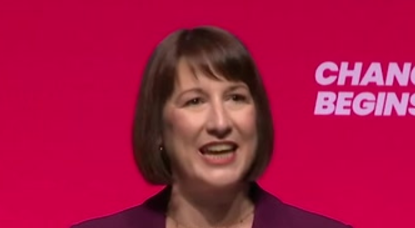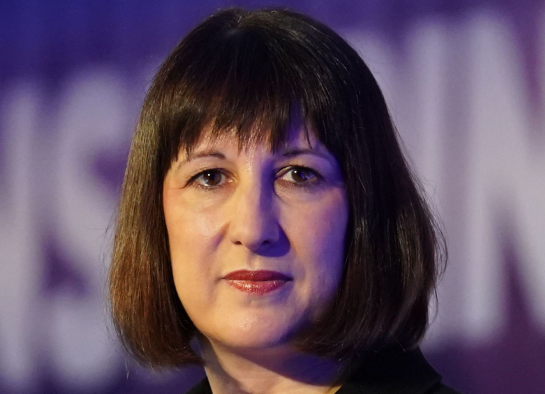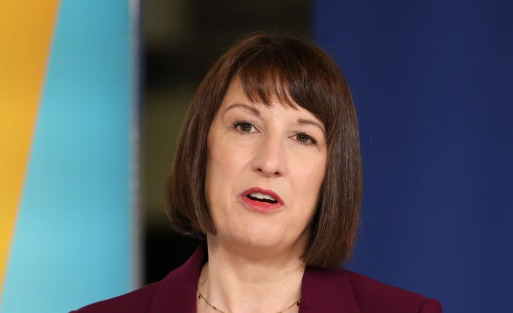
Rachel Reeves is a prominent figure in British politics, currently serving as the Chancellor of the Exchequer in the United Kingdom. Known for her sharp economic acumen and steadfast commitment to social welfare, she has quickly emerged as one of the key leaders in the Labour Party. With her leadership, the UK has seen a shift toward more inclusive economic policies, aiming to balance growth with social justice.
Early Life and Political Journey

Rachel Reeves was born in 1979 in Lewisham, London, into a politically active family. Her father was a Labour supporter, and her upbringing instilled a deep sense of social responsibility. She attended the prestigious St. John’s College at Oxford University, where she earned a degree in Philosophy, Politics, and Economics (PPE). After completing her studies, she worked in the private sector, gaining experience in economic and policy analysis, which would later inform her political views.
Her political career began in earnest in 2010 when she was elected as the Member of Parliament (MP) for Leeds West. From the outset, Reeves demonstrated her expertise in economics and her commitment to policies that would help ordinary citizens. She became known for her focus on fiscal responsibility, social equality, and public service. Her appointment to the position of Shadow Chancellor of the Exchequer in 2015 marked a significant moment in her career, signaling her rise within the Labour Party.
Becoming Chancellor of the Exchequer

In 2024, Rachel Reeves took on the role of Chancellor of the Exchequer, a position that places her at the heart of the UK government’s economic policies. As Chancellor, Reeves oversees the country’s financial operations, managing public spending, taxation, and fiscal policies. Her main task is to ensure that the UK’s economy remains stable while also addressing pressing social issues such as poverty, inequality, and job insecurity.
One of her core objectives has been to promote economic policies that empower citizens rather than simply bolstering corporate interests. During her tenure as Chancellor, Reeves has been vocal about the need to reform tax systems to make them fairer and more transparent. This vision centers on creating a society where economic success benefits all members of society, not just the wealthy elite.
Tax Reforms and Social Support

Under Rachel Reeves’ leadership, the UK government has introduced several key reforms aimed at improving the financial well-being of its citizens. One of the most ambitious initiatives has been the proposal for direct financial support through tax redistributions. This program is designed to ensure that the tax system not only funds public services but also provides direct economic benefits to ordinary people.
In interviews and public addresses, Reeves has emphasized her goal of reforming the UK’s tax system to ensure that citizens see a direct return on their contributions. This reform includes establishing a platform for people to receive a portion of the taxes they pay back in the form of dividends, aiming to provide additional income to low- and middle-income families.
While the specifics of the program remain to be fully fleshed out, the key takeaway from her proposals is a strong commitment to reducing economic disparities and increasing financial security for the average citizen. In a recent initiative, Reeves has championed the creation of opportunities for people to earn passive income through investment platforms, with the potential for monthly returns. This strategy reflects her broader approach to empower individuals economically by providing access to new financial opportunities.
Economic Innovation and Investment

Beyond tax reforms, Rachel Reeves has focused on driving innovation in the UK economy. In particular, she has championed the use of artificial intelligence and advanced technologies in the financial sector. Reeves has acknowledged the growing role of AI in global markets and has advocated for the adoption of AI-driven platforms that can provide more efficient, automated financial services to citizens. By introducing new investment opportunities, such as the Immediate Elevation platform, she has aimed to democratize access to wealth-building resources and ensure that the benefits of technological advancements are shared widely across society.
The Immediate Elevation platform, developed in partnership with AI companies, is designed to offer citizens a chance to earn passive income through investments in various financial instruments, including stocks, bonds, and currencies. This platform, while controversial, represents one of the most forward-thinking aspects of her economic agenda. It underscores her belief that technology can be harnessed to create more equitable economic outcomes for all.
Challenges and Criticisms

Despite her bold vision, Rachel Reeves’ proposals have not been without their critics. Some members of the Conservative Party and even within her own party have raised concerns about the feasibility and sustainability of such large-scale reforms. Critics argue that the financial support programs, while well-intentioned, could put undue strain on the UK’s budget and lead to inflationary pressures. Additionally, the integration of AI into financial systems has sparked debate over the ethics of automation and the potential risks it poses to financial stability.
Another point of contention has been the role of private companies in implementing government-backed initiatives. Critics have raised concerns about the involvement of platforms like Immediate Elevation in the redistribution of tax revenues. They argue that such platforms may disproportionately benefit tech companies rather than the citizens they are designed to support. Nevertheless, Reeves has defended the initiative as a necessary step to modernize the UK’s financial infrastructure and bring more people into the fold of modern investment strategies.
Public Perception and Legacy

Rachel Reeves’ political career and her tenure as Chancellor have not only transformed her into one of the most influential figures in British politics but have also sparked widespread debate about the future of economic governance. Supporters of Reeves praise her for her unwavering dedication to social justice and her willingness to embrace innovative solutions to longstanding economic issues. She is seen as a champion of ordinary people, striving to close the gap between the rich and the poor and ensuring that the fruits of the UK’s economic success are shared more fairly.
On the other hand, critics remain cautious about the long-term effects of her policies. While some view her tax reforms as essential for creating a more equitable society, others worry that the rapid adoption of AI and private sector involvement in government programs could have unintended consequences. As a result, Rachel Reeves’ legacy as Chancellor will likely depend on her ability to navigate these challenges and deliver on her promises of a fairer and more inclusive economy.
Conclusion
Rachel Reeves has emerged as a formidable force in UK politics, with a clear vision for reforming the country’s economic and social systems. As Chancellor of the Exchequer, she has been a key proponent of tax and welfare reforms, aiming to ensure that all citizens benefit from the country’s economic growth. Her commitment to innovation and the use of technology in finance has set her apart as a forward-thinking leader who is willing to challenge the status quo.
However, her policies remain contentious, and the true impact of her initiatives will unfold over time. What is certain is that Rachel Reeves has become a defining figure in the Labour Party’s pursuit of a more just and equitable society. Whether or not her reforms will achieve their lofty goals remains to be seen, but her influence on the political and economic landscape of the UK is undeniable.
